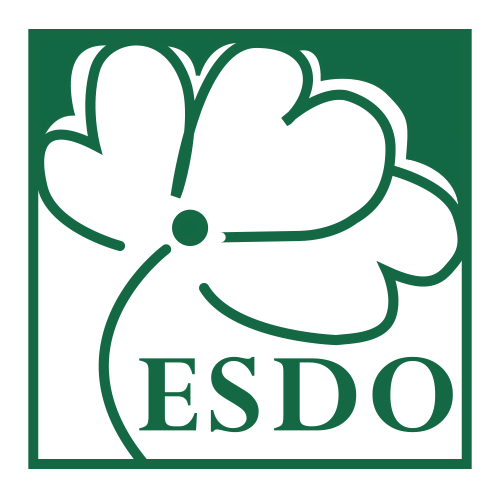Bangladesh to discuss the trans-boundary movement of plastic wastes from China
and India through Meghna, Bhramaputra, and Ganges river system. The illegal
entrance of plastic wastes from developed countries must be monitored.
Dhaka 13th December 2020: ―”Government of Bangladesh has not allowed and will never allow plastic waste and its illegal trade into our country” said Md. Shahab Uddin Honorable minister of the Ministry of Environment, Forests and Climate Change.
A virtual high-level policy dialogue via ―ZOOM‖ was organized by Environment and Social Development Organization-ESDO today (Sunday) to discuss “toxic plastic waste trade and its trans-boundary movement” in Bangladesh. Md. Shahab Uddin graced the event as the chief guest. He said ―Developed countries like the USA and UK have tried to send their plastic waste in our country. But, in May 2019, some 1400 delegates who also included delegates from Bangladesh agreed to include plastic waste in the “Basel Convention” and develop a legal framework. The government of Bangladesh has committed to ratify Basel Ban Amendment and already developed a legal framework to control the trans-boundary movement of plastic wastes. Moreover, “Import Policy Order 2015-2018” restricts the entrance of any waste into Bangladesh”.
Ambassador of Japan to Bangladesh, H.E. Mr. ITO Naoki said ―Addressing plastic waste trade is very difficult to field. This is no easy issue. So, it requires our collective effort and international cooperation. My real concern is about the ecosystem of the Bay of Bengal. Plastic waste trade and its trans-boundary movement may ruin the ecosystem of the Bay of Bengal which is important for the sustainable development of Bangladesh‖. Beside he focused on ―Zero waste, zero plastic, and zero carbon.
Dr. A.K.M. Rafique Ahammed, Director-General of the Department of Environment said ―We will be happy to ratify Basel Ban Amendment soon. We have stopped several attempts to import wastes into our country. We have a strong position against all wastes. Plastic wastes do not stand alone as they contain other hazardous chemicals. Besides, incineration of plastic waste also releases black carbon (soot), which contributes to climate change and air pollution I request concerned authorities take necessary actions against those who import plastic waste into Bangladesh. They put money before the environment and the health of the people of the country. Department of environment will remain vigilant against such activities”.
On behalf of ESDO, the Chairperson, Syed Marghub Murshed asked everyone to consider the gravity of the plastic waste trade. He also urged the government to make a formal legal framework to ban plastic waste trade.
Millions of tonnes of plastic waste are traded around the world every year. The world produces 381 million tonnes in plastic waste yearly – this is set to double by 2034. The global trade in scrap plastic involves many different players, such as recycling companies, waste traders, dealers and transport companies, making traceability and control of the scrap plastic trade a challenge.
This waste primarily originated from three regions—57 million tonnes from East Asia and the Pacific, 45 million tonnes from Europe and Central Asia, and 35 million tonnes from North America. Approximately 50% of this wastes are single-use plastic & only 9% has ever been recycled.
In 2019, Basel Convention adopted two important decisions to address plastic waste. These steps have strengthened the Basel Convention as the only global legally binding instrument to specifically address plastic waste. The 14th meeting of the Conference of the Parties to the Basel Convention (COP-14, 29 April–10 May 2019) adopted amendments to Annexes II, VIII and IX to the Convention with the objectives of enhancing the control of the transboundary movements of plastic waste and clarifying the scope of the Convention as it applies to such waste.
As a party of the Basel Convention, Bangladesh has the responsibility to ratify the Basel amendment. But, till now Bangladesh has not ratified the “Basel Amendment” of 2019. ESDO’s 2019 study reveals that Bangladesh generates around 86,707 tons of single-use plastic annually from different sources, most of which are reported to be improperly managed giving rise to massive environmental pollution and degradation.
However, in recent years, several shipments containing plastic waste from developed countries reached Bangladesh, after countries like China, Malaysia stopped taking plastics. Amongst other distinguished guests, Keya Khan, Joint Secretary, MOEFCC; Md. Ziaul Haque, Director (AQM), DoE; representative of various ministries, JICA, FBCCI, BFFP, BELA, BAPA, West Concern, IUCN Bangladesh, GAIA Asia Pacific Regional and GAIA International; Tripti Arora, Coordinator, IPEN South Asia Hub, IPEN; Ishtiaq Uddin Ahmad, Chief Technical Advisor, Sustainable Forests and Livelihood – SUFAL project; Dr. Abu Jafar Mahmood, Former Professor, Department of Chemistry, Dhaka University; a representative from BELA took part in the meeting. Vice President of ESDO Professor Dr. Ainun Nishat, Secretary-General of ESDO Dr. Shahriar Hossain, Executive director, Siddika Sultana, and other team members of ESDO were present in this high-level policy meeting.
ESDO’s unceasing effort to stop plastic pollution and make an environmentally empathetic Bangladesh started back in 1990. The journey towards creating legislation is one of those efforts, through which, and with mass support, ESDO looks forward to achieving more significant outcomes for promoting environmental justice.
